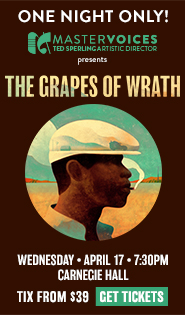Met Orchestra Chamber Ensemble brings joy of performing to rich program

After flutist Seth Morris played the last riff in the Scherzo of Bohuslav Martinů’s Sextet, he turned to pianist Bryan Wagorn and grinned.
It’s that sense of spontaneous enjoyment from the musicians that has made the Met Orchestra Chamber Ensemble concerts, which returned to Weill Recital Hall Tuesday night, one of the leading chamber music series in New York.
That has happened with just a handful of concerts, by giving the musicians substantial responsibility for choosing the programs. Sometimes things are that simple, and the chamber music repertoire makes that so. There are vast amounts of wonderful pieces that musicians play as they train, but that don’t have the popularity that appeal to administrators and board members and so rarely make it to concert halls.
But to hear Martinů’s Sextet, Ravel’s Introduction and Allegro, Toru Takemitsu’s Rain Spells, and the Sextet for Brass by Oskar Böhme in concert means not just hearing fine music, but refreshing music new to the ears.
Combined with the skill and commitment of the performances, the sense that the musicians are declaring the music has a place on concert programs but that it’s fun for them to play, made Tuesday night’s concert an ideal experience. All the performances had that same quality, a sense that it was a pleasure for the musicians to be there.
Along with the playing, other consistent threads that ran through the first three works was a sense of clarity, balance, and the sense that the composers looked out at the whole world as their audience. Concerts like this are also a welcome chance to hear instrumentation other than the standard combinations of strings and piano.
Martinů’s jaunty, urbane Sextet for Flute, Oboe, Clarinet, Two Bassoons, and Piano combines its unusual colors in different ways, with the inner movements breaking down into things like the Scherzo (really a flute and piano duo). Full of the composer’s own character, and touches of ragtime syncopation, played with wit by Wagorn, the performance had the spirit of its time and place—Paris between the wars— when a touch of popular dance and even the cosmopolitan blues was both expected and unexceptional.
The Introduction and Allegro from Ravel combines a string quartet with flute, clarinet, and harp. It was specifically written to show off what, in 1905, was new harp technology, and so that instrument is featured and framed by the music. Harpist Mariko Anraku was excellent, both leading and accompanying the other instruments. The clarity in her playing, from the great washes of sound, sensitive way with dynamics, and the lovely tone of single, resonant plucked notes, brought out the energy and charm in Ravel’s music.
Anraku was also at the center of the ensemble for Rain Spells, scored for harp, vibraphone, flute, clarinet, and piano. Takemitsu always sounds natural against Ravel, sharing the values of transparency, balance, and elegance. His impressionistic thinking goes deeper though, in line with the early 1980s, when he composed this piece—fragments of sound and silence are as essential to him as phrases. It took a minute or two for the playing to gel. Like rain, the music is supposed to pass by and vanish, and the musicians need to follow each other to manage timings and proportions.
After a stiff opening, the group found the right flow. The empty spaces went from being mere rests, where nothing happens, to moments of silence that outlined the sounds. One was then immersed in the performance, like watching drops of rain randomly spatter on a window.
Böhme’s Sextet was the stylistic outlier. A German cornetist living and working in St. Petersburg at the turn of the 20th century, the music is satisfyingly idiomatic, full of colors and wonderful blends of the instruments (a brass quintet plus a third trumpet). It is also deeply indebted to Tchaikovsky, sounding very much like a high-quality rewriting of ideas from some of the symphonies and ballets.
But there’s no shame in merely writing good music, and the Met brass players gave a polished and convivial performance to close the evening.
The Met Orchestra Chamber Ensemble plays Respighi, Schoenberg, and Mozart, 7:30 p.m., February 7, in Weill Recital Hall carnegiehall.org


